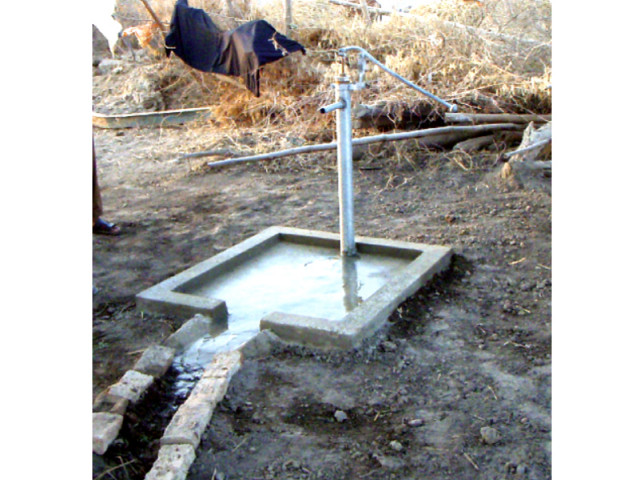Basic facilities: ‘Lack of safe drinking water a major problem’
50 per cent of the district’s population is deprived of clean drinking water.

0.24 million is the number of WASA consumer connections in the city. Of these, 74 per cent are residential, 17 per cent industrial and nine per cent other consumers.
“Supply of safe drinking water to the residents of the city is a challenging task due to the brackish and contaminated underground water in the area,” Water and Sanitation Agency (WASA) Managing Director Syed Zahid Aziz said on Thursday.
He was addressing members of the Faisalabad Chamber of Commerce and Industry.
“Wasa’s water supply capacity has increased to 80.8 million gallons per day from 65 million gallons a few years ago,” he said. “But it is still short of the 145 million gallons demand.”
The managing director said that potable water supply now reached 50 per cent of the population in the city up from 40 per cent in 1978. Sewerage facility now covered 72 per cent of the area compared to 50 per cent in 1978.
He said that the city was growing towards areas with brackish groundwater.

To a question about future projects, he said Wasa planned to increase water treatment capacity at Rakh Branch Canal to 20 cusecs from the current three cusecs.
Wasa, he said, currently had 247,625 consumer connections in the city, of which 74 per cent were residential, 17 per cent industrial and nine per cent other consumers.
For extension of water resources for the city, he said, some projects were being completed with the financial and technical assistance of French government and Japan International Cooperation Agency (JICA).
FCCI president Mian Zahid Aslam said that the chamber had recently donated Rs3.5 million to the flood affected in south Punjab. It had also contaminated Rs2.6 million for the promotion of education.
He said clean drinking water was a major problem for the 7.2 million people of Faisalabad. He said over 50 per cent of the district’s population was deprived of clean drinking water supply.
He said this was one reason why the number of hepatitis cases in the city was rising.
Published in The Express Tribune, September 27th, 2013.



















COMMENTS
Comments are moderated and generally will be posted if they are on-topic and not abusive.
For more information, please see our Comments FAQ